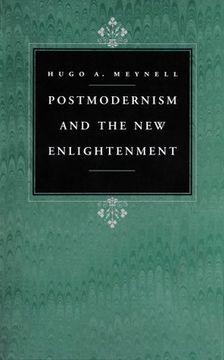Synopsis "Postmodernism and the new Enlightenment (in English)"
In this provocative book, Hugo A. Meynell sets out to describe what is known about "postmodernism." He criticizes its defects, calls attention to its dangers, and outlines a new way of thinking which combines postmodernism's best features with those of the Enlightenment to which it is so vehemently opposed. After a brief introduction, the author discusses the thought of Friedrich Nietzsche, whose work is prophetic of both postmodernism and the "new enlightenment." Next he summarizes the elements of the new enlightenment and the epistemological and metaphysical principles that constitute it. Meynell argues that the essence of the new enlightenment, as exemplified above all in the work of Bernard Lonergan, is an account of truth and value determined by four "transcendental" precepts: "be attentive, be intelligent, be reasonable, be responsible." He then moves to an exposition and critique of four thinkers representative of postmodernism: Foucault, Derrida, Lyotard, and Rorty. Criticizing these thinkers for emphasizing the creative powers of "intelligence" at the expense of "reason," Meynell suggests that reason is required if individuals are to get beyond speculation to finding out the truth about the world and themselves. Along the way, Meynell surveys interesting subsidiary movements and figures, like Baudrillard, Bataille, and some feminist thinkers considered postmodernists. In the final chapter, he returns to Derrida and the notorious question of his credentials as a philosopher. Throughout the book Meynell draws attention to the dangers of the cognitive and moral nihilism which appear to be an inevitable consequence of postmodernism, though he admits that it provides useful correctives to the deficiencies and limitations of one conception of reason. The new enlightenment is presented as playing synthesis to the "old" enlightenment thesis and the postmodernist antithesis.

